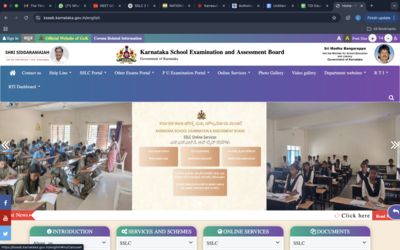6 career paths for engineers who don’t want to code

When people think “engineer,” they often picture someone hunched over a laptop, writing endless lines of code. And while coding is a big part of many tech careers, it’s far from the only path available—nor is it the right one for everyone.The truth is, not all engineers are passionate about programming. Some prefer big-picture thinking, others love working with people, and many are drawn to creativity, communication, or problem-solving that goes beyond the command line.If you’re an engineering student or graduate who enjoys building, thinking critically, and working in tech—but just doesn’t vibe with coding—you’re not alone. And more importantly, you’re not limited.The modern job market is full of exciting roles where your engineering mindset is an asset—even if you never touch a compiler again. Let’s explore six career paths that let you stay in the tech world, make an impact, and work on what you actually enjoy.
Product Management
Imagine being the person who decides what gets built, how it looks, when it launches, and who it’s for. That’s the life of a product manager.You won’t be writing the code yourself—but you’ll work closely with engineers, designers, and business teams to shape the vision of a product from start to finish. It’s a perfect blend of strategy, creativity, and leadership.For engineers, it’s a natural fit. You already understand how systems work and what’s technically possible. Now, you’ll add business sense and user empathy into the mix.
UX/UI Design and Research
If you’re more fascinated by how people interact with technology than how it’s built under the hood, UX/UI design could be your sweet spot.In this world, you’ll design interfaces, craft user journeys, and make products easier—and more delightful—to use. Or, you might dive into UX research, studying real users to understand their habits, needs, and frustrations.An engineering background helps you speak the same language as developers while advocating for better, more human-centered design. And if you’ve got an eye for aesthetics or a passion for storytelling through visuals, even better.
Technical Writing
Some people build things. Others explain how to use them. If you’re someone who enjoys writing, organizing thoughts, and making complicated ideas simple, technical writing is a powerful path.Think of API guides, user manuals, onboarding docs, or internal wikis—someone has to create those. And ideally, that someone knows the tech they’re explaining.With your background, you already understand the systems. Now, you just have to translate them for the world. Bonus: It’s a growing field, especially in SaaS and enterprise tech.
Operations and Supply Chain
If you’re someone who enjoys solving real-world logistical problems, optimizing processes, or working across teams, operations roles might speak your language.Whether it’s managing inventory, improving manufacturing timelines, or ensuring that the right product gets to the right place at the right time—this is where engineering meets business efficiency.Mechanical, industrial, and even computer engineers often find rewarding careers here, especially in manufacturing, e-commerce, and global supply chain management.
Sales Engineering and Tech Consulting
Love working with people but still want to stay close to the tech? Sales engineering or tech consulting might be your best-kept secret.These roles put you in client-facing positions, where your job is to explain the product, solve customer problems, and help companies adopt complex technology solutions. You’re not building the product—you’re helping others understand and use it.You’ll need communication skills, empathy, and problem-solving abilities—and your engineering background gives you the technical edge to stand out.
Project Management
Every team needs someone who sees the big picture, manages the moving parts, and ensures projects are delivered on time. That’s what project managers do.You don’t have to code the product, but you do need to understand what it takes to build one—and that’s where your engineering experience comes in. It helps you speak both the technical and business languages fluently.Plus, if you enjoy bringing structure to chaos, leading cross-functional teams, and hitting milestones, you’ll thrive here.Opting out of coding doesn’t mean stepping away from innovation or impact. Engineering is about solving problems, thinking systematically, and making things better. Those skills are incredibly versatile—and in high demand across industries.So whether you’re more of a people person, a planner, a designer, or a writer, there’s a place for you. The key is to follow what excites you—not just what’s expected of you.





